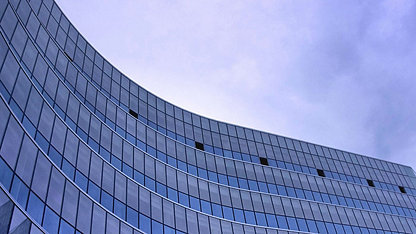RICS Q3 UK Commercial Property Monitor
- Occupier and investor demand metrics remain in negative territory at UK-wide level
- 58% of respondents still perceive the market to be in a downturn phase, while 24% sense conditions are consistent with the bottom of the cycle
The Royal Institution of Chartered Surveyors (RICS) today releases its Q3 2023 UK Commercial Property Monitor, where activity remains relatively downbeat. Tighter financial conditions and a sluggish economic backdrop weigh on activity across both the investor and occupier markets. More than 75% of contributors envisage pressure on corporate cash-flows intensifying over the next year. That said, while the outlook for overall rents and capital values is still slightly negative, there is somewhat better performance anticipated across prime markets as well as for some alternative sectors.
The headline occupier demand indicator posted a net balance reading of -12% in Q3, down marginally compared with the -10% reported in the previous quarter. As such, this measure continues to signal a modest overall decline in occupier demand. Taken apart, both the office and retail sectors exhibit a clearly negative trend in tenant demand, posting respective net balances of -19% and -25%. Meanwhile, for industrials, the latest net balance of +3% points to stalled demand growth over the quarter and is the softest reading since Q2 2020.
In terms of availability, respondents continue to cite an increase in overall vacant space in both the office and retail sectors. On the back of this, the use of incentive packages, such as rent-free periods, continues to climb.
Twelve-month rental growth projections, therefore, remain mixed across the various sub-sectors. At the stronger end of the spectrum, a net balance of +46% of survey participants foresees a continued rise in prime industrial rents over the year to come, although these expectations have moderated significantly when compared to expectations in previous years. Concurrently, secondary industrial rents are also anticipated to rise modestly. Across the office sector, the divide between prime and secondary remains stark, with anecdotal comments from respondents frequently highlighting the disparity. While prime offices are anticipated to deliver a small uplift in rental values over the year ahead (+21% net balance), rents are seen falling relatively sharply across secondary office space (-47%). For the retail sector, a net balance of -13% of respondents expects prime rents to fall with the outlook altogether more downbeat across secondary retail (net balance -51%).
Investor demand trends were again subdued in Q3. Overall investment enquiries posted a net balance of -21%, representing the fifth consecutive quarter where this indicator has been in negative territory. Looking at the sector level data, while the Q3 net balance of zero for industrials points to a generally flat picture for investment enquiries (marginally improved on -2% seen last quarter), the latest readings remain altogether more downbeat for offices and retail at -33% and -35% respectively. Twelve-month capital value projections also remain negative across most traditional market segments.
Recently, RICS launched its Manifesto for the Built Environment, which called for a national retrofit programme for non-residential properties that is aligned with the National Retrofit Strategy to ensure that commercial and public buildings remain in demand and reduce the risk of existing stock becoming unoccupiable in favour of newer more sustainable properties
RICS Senior Economist, Tarrant Parsons, said: “The UK commercial property market continues to feel the effects of higher interest rates, still well above target inflation, and weak prospects for economic growth over the near term. As such, investment activity remains subdued, while occupier market trends are also now clearly softening. This general pattern is reported right across the UK, with secondary office and retail premises seeing the brunt of the downturn, driven by both structural and cyclical dynamics. On a more resilient note, prime offices continue to outperform the secondary market, benefiting from a flight to quality post-pandemic and more attention around energy efficiency standards. Similarly, industrial demand is holding up better than other traditional sectors, even if the picture is far less buoyant than in recent years.”
-ENDS-
Notes for editors: The full UK Commercial Property Monitor may be found at this link.
About RICS
We are RICS. Everything we do is designed to effect positive change in the built and natural environments. Through our respected global standards, leading professional progression and our trusted data and insight, we promote and enforce the highest professional standards in the development and management of land, real estate, construction and infrastructure.
Our work with others provides a foundation for confident markets, pioneers better places to live and work and is a force for positive social impact.
For more information:
Kris Hicks











